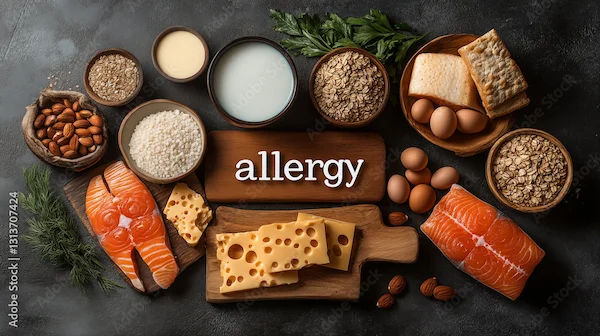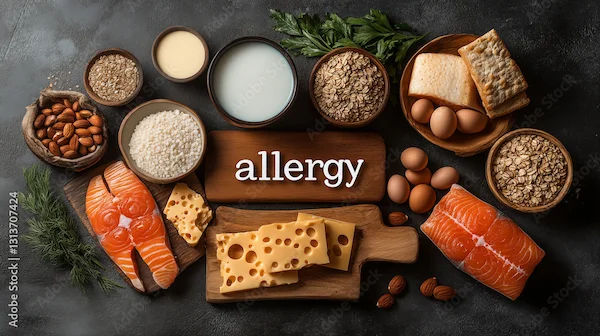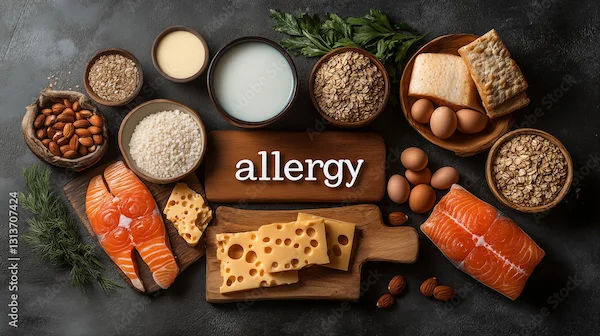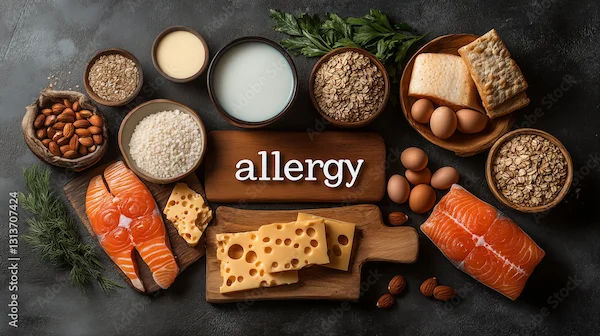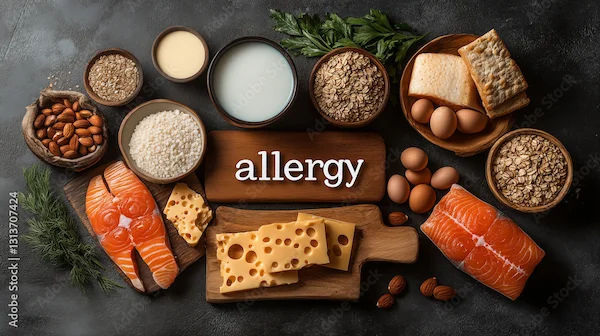Food Allergy and Food Intolerance Differences
Discover the differences between food allergies and food intolerances, including their symptoms, causes, and how each condition affects the body. Learn how to manage both effectively for better health.

Written by Dr. Shaik Abdul Kalam
Reviewed by Dr. Rohinipriyanka Pondugula MBBS
Last updated on 13th Aug, 2025

Introduction
When certain foods make you feel unwell, it can be confusing to figure out whether you have a food allergy or food intolerance. While both can cause discomfort, they are very different in how they affect your body. Let’s break down the differences in simple terms so you can better understand and manage your symptoms.
What Is a Food Allergy?
A food allergy is when your immune system mistakenly treats a harmless food as a threat and reacts strongly against it. This reaction can be sudden and sometimes life-threatening.
Common Symptoms of Food Allergy:
Skin reactions: Hives, itching, swelling (especially around the mouth or face).
Breathing problems: Wheezing, coughing, throat tightness.
Digestive issues: Nausea, vomiting, diarrhea.
Severe reaction (Anaphylaxis): Difficulty breathing, rapid drop in blood pressure, dizziness, loss of consciousness (requires emergency treatment).
Common Food Allergens:
Milk
Eggs
Peanuts
Tree nuts (almonds, walnuts)
Fish & shellfish
Soy
Wheat
Health topic carousel:
Doctor's speciality: Immunology
Text: Consult a Top Immunologist
What Happens in a Food Allergy?
Your immune system releases antibodies (IgE) that trigger chemicals like histamine, leading to rapid and sometimes dangerous symptoms. Even a tiny amount of the allergen can cause a reaction.
What Is Food Intolerance?
Food intolerance is when your body has trouble digesting certain foods, leading to discomfort, but it does not involve the immune system. Symptoms are usually delayed and less severe than allergies.
Common Symptoms of Food Intolerance:
Digestive problems: Bloating, gas, diarrhea, stomach cramps.
Headaches or migraines.
Fatigue or brain fog.
Skin issues (mild rashes, eczema flare-ups).
Common Causes of Food Intolerance:
Lactose intolerance (inability to digest milk sugar).
Gluten sensitivity (non-celiac gluten intolerance).
Food additives (MSG, sulfites, artificial sweeteners).
Histamine intolerance (found in aged cheese, fermented foods).
What Happens in Food Intolerance?
Your digestive system struggles to break down certain foods due to enzyme deficiencies (like lactase for lactose intolerance) or sensitivity to food chemicals.
Key Differences Between Allergy and Intolerance
Below are the key differences between allergy and intolerance,
| Feature | Food Allergy | Food Intolerance |
|---------|-----------------|----------------------|
| Immune System Reaction? | Yes (IgE antibodies) | No |
| Symptom Onset | Within minutes to 2 hours | Hours to days later |
| Severity | Can be life-threatening (anaphylaxis) | Uncomfortable but not dangerous |
| Amount Needed to Trigger Reaction | Tiny amounts | Larger amounts usually needed |
| Common Tests | Skin prick test, blood IgE test | Elimination diet, breath tests (for lactose) |
How to Manage Food Allergies and Intolerances?
Below are the ways to manage food allergies and intolerances,
For Food Allergies:
Strict avoidance of the allergen.
Read food labels carefully (look for hidden ingredients).
Carry an epinephrine auto-injector (EpiPen) if prescribed.
Inform friends, family, and restaurants about your allergy.
For Food Intolerances:
Keep a food diary to track trigger foods.
Try an elimination diet (remove suspected foods, then reintroduce one by one).
Use digestive aids (e.g., lactase enzyme for lactose intolerance).
Choose alternatives (lactose-free milk, gluten-free grains).
When to See a Doctor?
If you suspect a food allergy or intolerance, consult a doctor or allergist for proper testing.
For allergies: Skin prick tests or blood tests can confirm allergens.
For intolerances: Elimination diets or hydrogen breath tests (for lactose intolerance) may help.
If you experience severe allergic reactions (trouble breathing, swelling), seek emergency help immediately.
Need Help? Book a Consultation Today!
If you're struggling with food-related symptoms, don’t ignore them. Early diagnosis can help you manage your condition better. Schedule a consultation with an allergist or nutritionist through Apollo 24|7 to get personalized advice and tests.
Final Thoughts
Understanding whether you have a food allergy or intolerance is crucial for your health. Allergies require strict avoidance and emergency preparedness, while intolerances can often be managed with dietary adjustments. If you suspect any food-related issues, don’t hesitate to seek medical advice. Stay informed, stay safe, and eat well!
Health topic carousel:
Doctor's speciality: Immunology
Text: Consult a Top Immunologist
